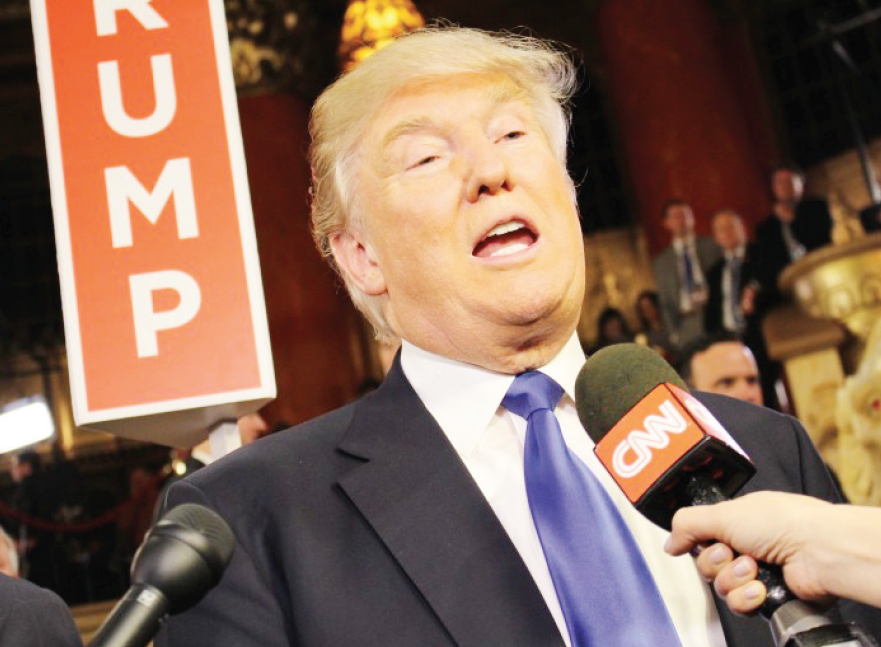
Donald Trump could be the nominee of the Republican Party in the presidential election.
Trump has said during the Republican debates and at his rallies that he plans to cut the Department of Education (ED) and the Environmental Protection Agency (EPA). Through cutting ED funds might affect higher education students in small ways, cutting funds to the ED wouldn’t stop federal aid to students because it’s a cabinet level department and services wouldn’t stop after cuts.
However, cutting the ED would affect how student aid is granted and distributed. Federal blocks of grant money would be made to the states, making the state governments responsible for distributing the funds rather than the federal government.
“Trump is personally not my first choice,” said Ferris criminal justice graduate student and president of College Republicans Spencer Redford. “But, I think the majority of Republicans will most likely support him if he is the nominee. I think Cruz has the most likely chance of getting the nomination behind Trump right now, and that’s why I’m supporting him.”
Redford said he supports Cruz because he appears to be a stronger constitutionalist than Trump, and Cruz is also a fiscal conservative.
Ferris political science and economics junior and president of Young Americans for Liberty Justin Austin argued that Trump might be better for the political process and the economic future of the United States because he would run the country like a businessman rather than a politician.
“Maybe Trump would go in and actually try to create more competition between universities, as far as them competing for profit,” said Austin. “Where universities are now relying on easy loans to people who shouldn’t be getting them, it would seem with him being the way he is as a businessman, he would see that and intervene. What does that mean for the college student? It wouldn’t mean ‘Bernie Sanders free college.’ Trump would be someone stepping in and making education more free market, more competitive and better for the individual student.”
Ferris professor of political science Richard Griffin said he doesn’t see Trump getting the Republican nomination. Also, it’s uncertain if the Republican Party will back Trump if he gets a majority of the primary delegates before the Cleveland Republican convention in July.
“The fight now is going on between the Trump supporters and the Republican establishment,” said Griffin. “And I don’t blame them. They’ll lose control of their party to Trump and the ‘Trumpites,’ he’ll move on to something else and they’ll be in shambles.”
Marco Rubio suspended his campaign on March 16, but he maintains control of the delegates he’s won ahead of the Cleveland Republican National Convention to be used as “bargaining chips” in choosing the Republican nominee.
Ted Cruz is the leader behind Trump, but if Cruz and trailing competitor Kasich can secure enough delegates, they’ll have the chance to force an open vote for the nominee in Cleveland this July, according to Griffin. When going into an open convention, it could be the presidential nominee is chosen on the second or third ballot, and according to Griffin the nominee could be Kasich.
“These Trump supporters and Cruz supporters don’t see the value of an education, because, for the most part, they didn’t get one themselves,” said Griffin. “You know what Trump said? ‘I love the poorly educated.’ Well, the under-educated person’s vote is just as good as yours or mine. I’m not an elitist snob or anything like that, but you have to see who he’s appealing to.”
To read Torch coverage of the RNC debate that took place in early March in Detroit, click here.
